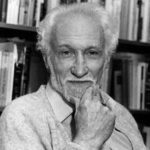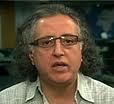Revoking Corporate Charters
Corporations, Corporations. From ExxonMobil to Wal-Mart they dominate society and politics. Over the last 100 years corporations have accrued enormous economic power and legal standing. A corporation is licensed to do business. These licenses are called charters. In theory, when a corporation violates its charter, it can be revoked. That used to happen but not any more. And now corporate power has gotten a big boost. On Jan. 21, 2010, the Supreme Court, in Citizen’s United v. Federal Election Commission, ruled that there are no limitations on campaign contributions by both domestic and foreign corporations. Noam Chomsky calls the decision “a dark day in the history of U.S. democracy, and its decline.” The ruling, The New York Times says “strikes at the heart of democracy” by having “paved the way for corporations to use their vast treasuries to overwhelm elections.”
Recorded at the University of Colorado.
Speaker

Richard Grossman
Richard Grossman, co-founder of the Program on Corporations, Law & Democracy, was an independent researcher and writer focusing on governance, law, corporations, and organizing strategies. He passed away in New York in November 2011.







Chris S. –
I heard Grossman’s “Revoking Corporate Charters” and realized the importance of the struggle against corporate power and culture. The depth of his knowledge and understanding in the history of the corporation and the distinction of the nature of the corporate entity really made it quite clear that we can’t ignore what has been going on. His passing was a huge loss. I intend to learn as much as I can about it so I can have conversations that make a difference with people who are still “in the dark”.
Tom M –
Grossman offers a superb account of the origin and development of corporations – they have truly evolved over time, and for specific reasons acquired a legal standing they were never meant to have, usurping the people as the true sovereign power in the US.